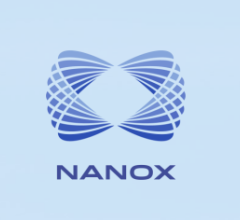
June 19, 2009 - Increased utilization of advanced medical imaging, such as CT and MRI, between 1991 and 2004 improved life expectancy rates by a significant factor, actually greater than the increases in mortality caused by obesity over the same timeframe, according to a recent study conducted by Columbia University professor Frank Lichtenberg, Ph.D. The results of this study, “The Quality of Medical Care, Behavioral Risk Factors, and Longevity Growth,” were released through the National Bureau of Economic Research.
“As healthcare reform moves forward, and we work to identify the best ways to improve outcomes while reducing costs, this research provides helpful insights on some of the key influencers that can help us to do just that,” said Ilyse Schuman, managing director, MITA, a member of the Access to Medical Imaging Coalition. “MITA applauds the work of Dr. Lichtenberg, whose thorough and detailed analysis has shown that with life expectancy varying so greatly from state to state, and countless variables to be taken into consideration, there is an undeniable correlation between increases in advanced medical imaging and increases in life expectancy.”
In his evaluation, Dr. Lichtenberg sought to determine the reach and effect of certain variables on life expectancy: the effect of the quality of medical care, behavioral risk factors (obesity, smoking, AIDS incidence), and other variables (education, income, and health insurance coverage) on life expectancy. In determining the quality of medical care, Dr. Lichtenberg evaluated average quality of diagnostic imaging procedures, average quality of practicing physicians and the mean vintage (FDA approval year) of outpatient and inpatient prescription drugs.
Across the board, Dr. Lichtenberg found that life expectancy increased more rapidly in states that experienced larger increases in utilization of advanced medical imaging, but that those same states did not have larger increases in per capita medical expenditure.
Based on this finding, Dr. Lichtenberg concluded that “this may be the case because, while newer diagnostic procedures and drugs are more expensive than their older counterparts, they may reduce the need for costly additional medical treatment. The absence of a correlation across states between medical innovation and expenditure growth is inconsistent with the view that advances in medical technology have contributed to rising overall U.S. healthcare spending.”
Interestingly, advanced medical imaging techniques were attributed with increasing life expectancy by 0.62 to 0.71 years (out of a total 2.37 year increase) over the 14-year period in question, which is comparable to the 0.58 to 0.68 year decrease in life expectancy due to increased prevalence of obesity.
To read the full paper by Dr. Lichtenberg: http://www.nber.org/papers/w15068


 February 13, 2026
February 13, 2026 









